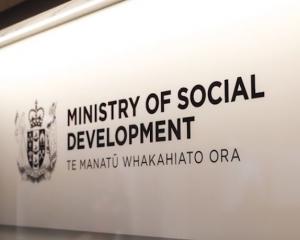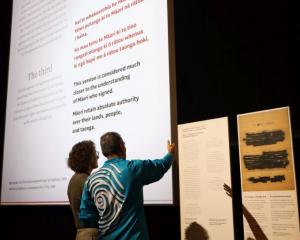The Bioethics Council's controversial support for parents to choose the sex of their babies to balance families flies in the face of decades of action to end discrimination based on gender, says a leading academic ethicist.
Professor Donald Evans, director of Otago University's Bioethics Centre, said yesterday that allowing social grounds for the sex selection of embryos during fertility treatment would be "winding the social clock back in New Zealand by at least a generation and a half".
It is scientifically possible to choose the sex when a test-tube baby is being made, using a testing method called pre-implantation genetic diagnosis (PGD). Only embryos of the "right" sex are implanted in the woman's uterus.
But doing this on social grounds is banned and the test can be carried out only for medical reasons.
It is also not done for social reasons in Australia or Britain, but is permitted in the United States.
A council report yesterday advised the Government that there were insufficient cultural, ethical and spiritual reasons to prohibit the use of PGD for sex selection for social reasons such as "family balancing" - providing PGD is undertaken at the parents' own cost.
"We think further investigation of the reasons for apparent public concern about the use of PGD for sex selection is warranted."
Some of the more than 700 people who contributed to the council's deliberations - which covered pre-birth tests and living with disabling conditions - called for limits on the use of PGD, like the ban on non-medical sex selection, and that they be reviewed regularly.
The report said the reasons for concerns about sex selection for family balancing were unclear.
"Perhaps they stem from a perception that this is a comparatively trivial application for a technology with profound implications, or they may be related to distaste for practices in some countries where girl babies are routinely aborted or abandoned in favour of boys."
But Professor Evans said: "There have been huge battles fought in New Zealand for gender equality - that is, refusing to value or dis-value a life in terms merely of its gender. Huge victories have been won."
Choosing employees based on gender was illegal and allowing embryo sex selection on social grounds would be "very much against the spirit of these important changes".
"So I'm very puzzled that the report says there is insufficient cultural, ethical or spiritual reason to prohibit this, when certainly New Zealand has been moving absolutely in the opposite direction for a generation and a half.
"Maybe their inquiries didn't come up with any further evidence but they certainly chose to ignore this crucial social evidence, which is characterised by our society becoming a more just society over these past 30 or 40 years."
Professor Evans also said the council recommendation was back-to-front by relying on a claimed insufficiency of evidence for the status quo, rather than providing evidence for change.
The Catholic Church, which has denounced embryo sex selection as pursuing "designer babies", also criticised the recommendation.
"Sex selection crosses a boundary and opens up the possibility for using this technology for other social reasons, [to produce] so-called desirable characteristics," said the Rev Dr Michael McCabe, director of the Catholic Bioethics Centre.











